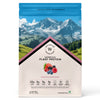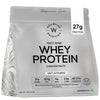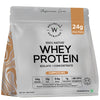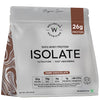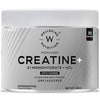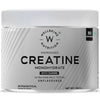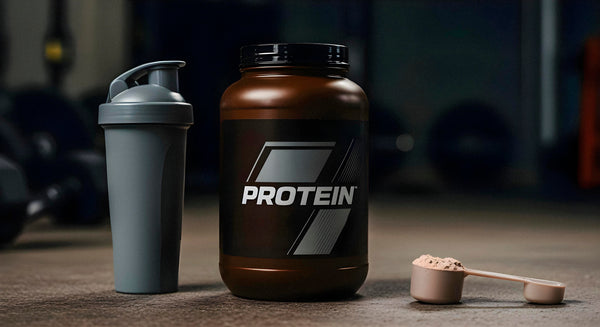Recovery is just as important as training when it comes to athletic performance. Without proper post-exercise recovery, muscles remain fatigued, soreness persists, and performance declines over time. Protein plays a critical role in this process by repairing muscle damage, reducing soreness, preventing muscle loss, and optimizing strength and endurance. Whether you're an endurance athlete, weightlifter, or weekend warrior, consuming the right type of protein can accelerate healing and enhance overall performance.
Why Protein Is Essential for Post-Exercise Recovery
1. Muscle Repair & Growth
Exercise, particularly resistance and endurance training, creates micro-tears in muscle fibers. Protein provides the essential amino acids required to repair and rebuild these fibers, supporting muscle growth and strength. One crucial amino acid, leucine—a branched-chain amino acid (BCAA)—plays a key role in stimulating muscle protein synthesis (MPS), the process that enables muscles to rebuild and grow stronger post-exercise (NIH).
For efficient muscle recovery, protein sources with a rich amino acid profile are essential. Rapidly digestible protein options, including certain dairy-based and plant-derived formulations, are particularly effective for immediate post-workout recovery, while slower-digesting varieties support sustained muscle repair.
Protein powders, such as those containing whey with Velositol®, can significantly enhance muscle protein synthesis, while multi-sourced plant-based protein powders ensure a complete amino acid profile, making them a great alternative for muscle recovery. Incorporating dietary sources such as eggs, lean meats, dairy, legumes, nuts, and seeds ensures the body receives a steady supply of amino acids to optimize muscle growth and recovery.
2. Reducing Muscle Soreness & Fatigue
Intense physical activity often leads to post-workout soreness, also known as delayed onset muscle soreness (DOMS). Consuming protein-rich foods post-exercise can help alleviate this discomfort by aiding tissue repair and reducing inflammation.
Another key compound, creatine, plays an essential role in muscle recovery by improving cellular hydration and reducing markers of muscle damage. Studies have shown that creatine supplementation significantly reduces soreness and speeds up muscle recovery (NIH).
Natural sources of creatine include red meat and fish, while those following plant-based diets may consider fortified options or dietary supplementation. Additionally, protein powders with added bioactive compounds can further enhance recovery by optimizing amino acid absorption and muscle repair when paired with creatine supplements.
3. Preventing Muscle Loss
When the body lacks sufficient protein after exercise, it enters a catabolic state where muscle tissue is broken down for energy. This is especially concerning for endurance athletes and individuals engaged in prolonged physical activity.
To prevent muscle loss, it is crucial to incorporate high-quality protein sources into post-workout nutrition. Lean meats, poultry, fish, eggs, dairy, legumes, and soy-based foods all provide essential amino acids that help maintain muscle mass, particularly when combined with resistance training. Those following plant-based diets can optimize their protein intake by combining complementary sources such as legumes and grains. Additionally, selecting complete protein supplements—whether dairy-based or plant-derived—can help ensure an adequate amino acid intake to support muscle preservation.
4. Enhancing Strength & Endurance
Protein plays a crucial role in long-term training adaptations by promoting muscle fiber regeneration and strength development. Athletes focused on building strength and endurance require a consistent protein intake to optimize their training results.
Creatine, one of the most well-researched performance-enhancing compounds, boosts stored energy (ATP), enabling individuals to perform more repetitions, run longer, and lift heavier weights. Including creatine-rich foods such as red meat and fish in a well-balanced diet can enhance physical performance, while plant-based athletes can explore supplementation for optimal benefits.
Additionally, specific protein blends, enriched with muscle-boosting nutrients, can provide tailored support for different training goals, from endurance to muscle building. Multi-sourced plant protein powders can offer sustained energy release, making them an excellent choice for endurance training, while fast-absorbing dairy-based proteins support rapid muscle recovery.
5. Supporting Immune Function & Injury Recovery
Intense training sessions can temporarily weaken the immune system, making athletes more susceptible to illness. Protein supports immune function by aiding in the production of immune cells and antibodies, helping the body recover efficiently.
Post-exercise, consuming adequate protein ensures that the immune system remains strong and resilient. Lean meats, fish, dairy, eggs, legumes, and nuts all contribute to immune health, reducing the risk of overtraining-related illnesses.
Additionally, antioxidants and anti-inflammatory compounds found in fruits, vegetables, and herbal teas further support recovery and immune function. Certain fortified protein formulations also include immune-boosting compounds, making them a valuable addition to a recovery-focused diet.
Maximizing Post-Workout Recovery
Best Protein Sources
-
Whey Protein – Fast-absorbing, rich in BCAAs, ideal for immediate post-workout recovery. Choose a whey protein with Velositol for enhanced muscle protein synthesis.
-
Vegan Protein – Plant-based options like pea and soy protein, suitable for those avoiding dairy.
-
Creatine Monohydrate – Enhances muscle recovery, hydration, and strength gains.
Best Timing for Protein Consumption
-
Post-Workout Window – 30 to 60 minutes after exercise for optimal muscle repair.
-
Throughout the Day – Spreading protein intake supports continuous muscle recovery.
Other Factors - Hydration & Micronutrients
-
Staying hydrated improves protein absorption and supports muscle recovery by optimizing digestion and nutrient transport.
-
Electrolytes (such as sodium, potassium, and magnesium) help maintain fluid balance, preventing muscle cramps and fatigue.
-
Vitamin D enhances muscle function and supports protein synthesis.
-
Zinc plays a crucial role in enzyme activity related to protein metabolism, aiding in muscle repair and growth.
Conclusion
Protein plays a fundamental role in post-exercise healing, muscle repair, and overall athletic performance. Choosing the right protein—whether whey, vegan, or creatine—can significantly impact recovery speed and training outcomes.
For quick post-workout recovery, whey protein is the best option due to its rapid absorption. If you follow a plant-based diet, vegan protein blends ensure a complete amino acid profile. Meanwhile, creatine supplementation enhances strength, endurance, and hydration, making it a must-have for athletes.
To maximize benefits, choose whey or vegan protein with probiotics and digestive enzymes for better digestion. Ensure your protein has a Clean Label Purity Certificate, and opt for HPLC-tested creatine for guaranteed safety and effectiveness. Consulting a nutritionist or dietitian can help tailor a protein strategy that best suits your fitness goals and recovery needs.










